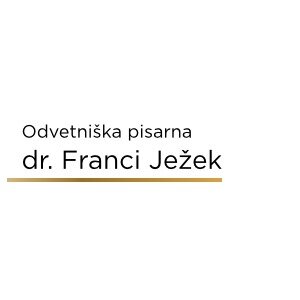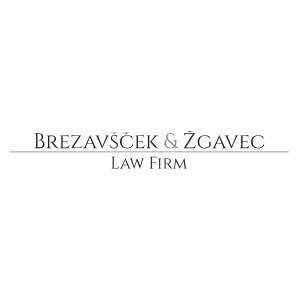Best Licensing Lawyers in Slovenia
Share your needs with us, get contacted by law firms.
Free. Takes 2 min.
Or refine your search by selecting a city:
List of the best lawyers in Slovenia
About Licensing Law in Slovenia
Licensing law in Slovenia governs the granting of permissions required for various activities that may involve intellectual property, business operations, or compliance with regulatory frameworks. This legal area ensures that businesses and individuals operate within the legal frameworks set by Slovenian and EU regulations. Licensing can involve the use of patents, trademarks, software, franchises, and professional services. Understanding these laws is crucial for anyone looking to operate legally and protect their commercial interests in Slovenia.
Why You May Need a Lawyer
In Slovenia, navigating licensing laws can be complex due to overlapping local and international regulations. You may need a lawyer for the following common situations:
- Negotiating and drafting licensing agreements
- Protecting intellectual property rights
- Ensuring compliance with regulatory requirements in specific industries such as healthcare or technology
- Handling disputes with licensing authorities or licensees
- Renewing or transferring licenses
- Understanding the implications of licensing on cross-border business operations
An experienced lawyer can help ensure that your rights and interests are safeguarded while minimizing legal risks.
Local Laws Overview
Slovenian licensing law is influenced both by national legislation and European Union regulations. Key aspects include:
- Intellectual Property Rights: Managed under the Slovenian Intellectual Property Office, these laws cover copyright, patents, and trademarks. Compliance is crucial for licensing intellectual property.
- Business Licenses: Required for various activities, ensuring businesses comply with industry regulations and standards.
- Professional and Industrial Licenses: Specific sectors such as healthcare or construction require special licensing.
- EU Directives: As a member of the EU, Slovenia incorporates relevant directives that impact local licensing practices.
Awareness of these regulations is essential to effectively manage licensing-related legal matters.
Frequently Asked Questions
1. What is a license in the legal context?
A license is a legal permission granted by a competent authority allowing someone to do or use something that would otherwise be illegal or infringing of rights.
2. Do I need a license to start a business in Slovenia?
Yes, many types of businesses require specific licenses to operate legally in Slovenia. The requirements vary depending on the nature of the business.
3. How do licensing agreements work in Slovenia?
Licensing agreements in Slovenia specify the terms under which one party may use the property, product, or service of another. These agreements need to be carefully crafted to ensure compliance with legal standards.
4. Can a license be transferred to another party?
This depends on the terms of the original licensing agreement and the type of license. Some licenses are transferable, while others are not.
5. What is the consequence of operating without a required license in Slovenia?
Operating without a required license can lead to legal penalties, including fines and the suspension of operations.
6. How long does it take to obtain a business license in Slovenia?
The timeframe can vary, but it typically takes several weeks to a few months to obtain all necessary approvals and documentation.
7. Are there any ongoing requirements once a license is granted?
Yes, many licenses come with requirements for periodic renewal or compliance checks to ensure continued eligibility.
8. What should I do if my license application is rejected?
If an application is rejected, a lawyer can help understand the reasons for the rejection and assist in addressing them or lodging an appeal if necessary.
9. How are licensing disputes resolved in Slovenia?
Disputes can often be resolved through negotiation or mediation; however, if these fail, they may need to be settled through litigation in Slovenian courts.
10. Does EU law affect licensing in Slovenia?
Yes, Slovenian licensing practices must comply with relevant EU directives and regulations, which can take precedence over national laws in certain respects.
Additional Resources
Several resources can help individuals and businesses understand licensing requirements in Slovenia:
- Slovenian Intellectual Property Office: Offers guidance on intellectual property matters.
- Slovenian Chamber of Commerce: Provides resources and support for business operations.
- Ministry of Economic Development and Technology: Responsible for business licenses and regulations.
- Legal Libraries and Databases: Useful for accessing legislation and case law.
Next Steps
If you need legal assistance in licensing matters, consider the following steps:
- Consult with a lawyer specializing in Slovenian licensing law to discuss specifics.
- Gather relevant documentation and details regarding your licensing needs or issues.
- Contact the relevant governmental bodies for initial guidance and procedural advice.
- Consider legal representation to ensure your rights and obligations are fully understood and met.
Taking these steps can help you navigate the complexities of licensing law in Slovenia and achieve compliance in your business or professional endeavors.
Lawzana helps you find the best lawyers and law firms in Slovenia through a curated and pre-screened list of qualified legal professionals. Our platform offers rankings and detailed profiles of attorneys and law firms, allowing you to compare based on practice areas, including Licensing, experience, and client feedback.
Each profile includes a description of the firm's areas of practice, client reviews, team members and partners, year of establishment, spoken languages, office locations, contact information, social media presence, and any published articles or resources. Most firms on our platform speak English and are experienced in both local and international legal matters.
Get a quote from top-rated law firms in Slovenia — quickly, securely, and without unnecessary hassle.
Disclaimer:
The information provided on this page is for general informational purposes only and does not constitute legal advice. While we strive to ensure the accuracy and relevance of the content, legal information may change over time, and interpretations of the law can vary. You should always consult with a qualified legal professional for advice specific to your situation.
We disclaim all liability for actions taken or not taken based on the content of this page. If you believe any information is incorrect or outdated, please contact us, and we will review and update it where appropriate.
Browse licensing law firms by city in Slovenia
Refine your search by selecting a city.

















